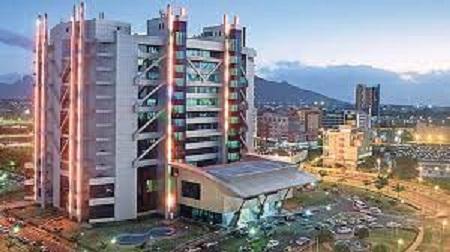Africa-Press – Mauritius. Mauritius approaches 2005 with pessimism as the Multi-fibre agreement (MFA) and the European Union (EU) sugar subsidy disappear. Malaise is reinforced by rising unemployment, high oil prices and the uncertainty of impending elections.
Mauritians? gloom is however unjustified. We can become a high-income country in the next quarter of the century provided ALL leaders (not just politicians) change mindset.
■ Private sector and trade union reform is essential? This article deals with public sector reform but should not obscure the need for private sector and trade union leaders to change.
Illovo, Air Mauritius and MCB problems have shed light on Mauritius Inc. based on links between big business, political parties, government and trade unions.
Capitalists and workers have all lived off (i) Lome sugar agreements; (ii) MFA; (iii) the reclassification of sugar and public land and (iv) government-created monopolies.
Blind defence of all workers and ignorance of economic laws neither protect workers? rights nor generate a fair division of assets and income. Trade unions are part of the problem when reorganization of revenue services is frustrated to defend all workers without distinguishing the corrupt or incompetent.
However, we leave it to others to discuss how our private sector can expand world-class services beyond hotel services and niche manufacturing markets or how cosy tripartite deals can be replaced with a fight for rewards to hard workers rather than those with the right name, family or connections.
Also, others need to discuss sectoral implications of the proposed strategy. ■ ?but the focus here is on the public sector None of these important issues matter unless the public sector sets the stage and provides leadership.
Hence the concentration on areas of reform in the government domain, particularly fiscal policy, public sector organization and regulations with a focus on labour.
Others, as the NPCC report of November 1, 2004 Competitiveness foresight: What orientations for Mauritius?) shows have discussed private sector reform, especially sugar, manufacturing and agriculture.
■ Mauritius after a generation of economic success Economic performance is rosier than most Mauritians? perceptions .
Over the last five years: (i) growth has remained respectable, averaging almost 4.5% a year with low and falling inflation averaging 5%; (ii) per capita income has grown about 10% and has risen from 27.5 to 30 percent of US income; (iii) exports have grown by almost a third and net international reserves by 125%; (iv) interest rates have fallen with prime rates coming down to 7% from 11%; and (v) the balance of payments remains healthy with a current account surplus.
This performance is even more impressive measured against 1982 when per capita income was less than a third of current levels and only 19% that of the US.
So why malaise? Uneasiness comes from growing unemployment (over 10% from 7.7% in 1999/00); lower growth (about half that achieved over 1985 to 1995); and a loss of reform momentum with no clear vision to update the ideas that propelled us from poverty in 1982 to middle-income status today.
Unease also reflects failure to control fiscal deficits and public debt while making little headway in implementing labour reform, product markets, business licensing and public spending.
Lack of reform is not just failure of political leadership but reflects business, labour and civic leaders failing to understand economic challenges and forge consensus as was done in 1982-85.
Insufficient reform brought crisis to Argentina, Brazil, Korea, Malaysia and Russia. If reforms lag, Mauritius will similarly face increasing risks over the next decade while even with growth, unemployment reaches 20 to 30%.
■ Overview of main areas where reform is needed To motivate reform, let us consider where Mauritius should be in a generation.
Our future, in addition to niche agriculture and manufacturing, is as a service economy for the Indian Ocean Rim (IOR) as Singapore is a service centre for South East Asia.
Dubai will service the Gulf while Australia and South East Asia do not need us. We are left with South Eastern Africa (SADC/COMESA) and India. While awaiting Africa’s emergence, history and culture allow us to serve an emergent India.
To become a tourism, shopping and business services centre requires low taxes and a deregulated economy focused on quality of public and private services.
For over a decade, economic observers have argued for reforms in sugar and textiles, the labour market, the regulatory regime and the public sector — to cut spending while modernizing government and revamping the tax system.
The next Government needs to forge consensus to implement these politically demanding reforms while building room (low deficit and debt) for the budget to respond to shocks from cyclones, terror, trade decline or loss of market access.
■ Unemployment?or working poor Why has unemployment risen since 1991 despite growth? In the 1980s, incomes were a third lower and productivity of unskilled labour was generally higher than tripartite negotiated wages.
EU sugar subsidies and the MFA could finance growth in unskilled wages above their productivity. As minimum wages kept growing, an increasing number of unskilled workers needed to be paid more than they would contribute to output.
No rational employer will hire someone who costs more than he contributes. Unemployment, therefore, rose though economic performance remained solid and we imported workers.
As Mauritius responds to competition by upgrading quality, the barely numerate or literate 30% who fail the Certificate of Primary Education become less employable unless their wage corresponds to their productivity.
If, instead, tripartite bargaining keeps raising minimum wages, more and more of this group will become unemployable. In the limit, unemployment would reach 30%.
We will not reach this level because many, to survive, would take jobs outside the formal sector at lower than legal minimum wages. However, a growing informal sector is not desirable.
■ Avoiding working poor To tackle unemployment, employers must be free to hire at wages reflecting productivity.
Training programs may allow some of the low-skilled to raise their productivity (although international experience suggests this is costly). This politically demanding approach will result in many working poor.
Even though they work hard, their low productivity will make them poorer in relative terms as the incomes of the rest of the population rise. Moreover, a large subset may be absolutely poor, unable to meet basic needs.
Government can address the problem by targeting subsidies and public services to this group e. g. health care, education, day-care for children, housing and transport.
To encourage employment, government could institute an earned income credit, which would act as a negative income tax: instead of paying tax, those below an income threshold would receive a tax credit provided they are employed.
This credit could be targeted to families with up to two children (to avoid incentives for large families). An Equal Employment Opportunity law would ensure that all communities benefit equally and serve to fight both social exclusion (at the bottom) and social rigidities (at the top).
■ Product market and licensing reform If we cannot compete in the way government regulates, we will find it hard to become the business centre for the IOR.
We need to streamline our product market regulation and business licensing regime to catch up within two years with Botswana, the best in Africa. Within ten years, we should be comparable to the top five in the high income OECD countries. The World Bank Doing Business database can help us compare our product market regulation and licensing arrangements with international best practice.
This database can be supplemented by Investment Climate Assessments (currently underway in Mauritius under the leadership of the Board of Investment), that evaluate our productivity and identify specific reforms to ensure we are competitive.
■ Tax reform Overall taxation of about 20% of GDP is appropriate but the composition needs to change. Our current reliance on import taxes must end if we are to be a service and shopping centre.
We must eliminate import tariffs while relying on low income tax rates and a broad-based Value Added Tax with a single rate and no exemptions, stiff excise and inheritance tax on the wealthy.
Income taxes need to yield 8 to 10% of GDP (half our required taxes). Mauritius raises only about 2.5 percent of GDP from income taxes compared with an average 5% for lower middle income countries and 11% for high income OECD countries.
We can achieve the target with low rates (maximum 30%) by clamping down on exemptions and evasion. Double taxation treaties and a tax system with low rates would encourage foreign firms in the IOR to declare income in Mauritius.
VAT should yield 8 to 10% of GDP instead of less than 7% of GDP currently. Upper middle income and high income OECD countries collect about 8% with a significant number obtaining between 10 and 12% of GDP.
VAT rates are at the right level provided exemptions are eliminated. As import tariffs are removed, excises may need to take up the slack on consumer durables, particularly motor vehicles, alcohol, tobacco, jewellery and petroleum products.
As in high income countries, like the US and in the EU, we need an inheritance tax on the wealthy to support low income tax rates, enhance economic opportunities and increase the link between reward and effort.
There is no logic to allow transfer of unlimited wealth without taxation to children who do not create jobs or wealth. This should be limited to large estates (say more than Rs 50 to Rs 100 million) and be progressive (e.
g. 10% rising to 50%). ■ Creating opportunities in the private sector Low taxes require spending control. Government can no longer be the employer of first or last resort nor act as a communal safety valve.
An efficient government means doing the same things with fewer resources including people. However, a leaner government without social turmoil depends on opportunities in the private sector. We need an Equal Opportunity Act that enforces hiring by the private sector of all ethnic groups, particularly in senior management positions.
We also need to reconsider programmes no longer necessary either because most Mauritians are three to five times richer or because technological progress allows more efficient market provision. Govern-ment must limit public services to those the private sector cannot offer competitively and limit subsidies to the poorest.
Building on the last budget?s bold steps to introduce means testing for pensions and other benefits, untargeted subsidies on rice, flour, energy, telecommunications and water need to be replaced by programmes limited to the poorest.
Electricity and water must be produced with the efficiency of high income countries. ■ University education for all Sustaining growth requires an upgrading of skills including oriental languages, science and IT.
Fewer than 20% of Mauritians go to university, half the figure in East Asia. We must aim at sending at least half of Mauritius to university. This requires bold government action as in the 1950s with universal free primary education and the expansion to secondary education in 1976.
However, the gap between social and personal benefits for university education is low. Because of this and to make the programme affordable to all, the government should offer a student loan programme to all Mauritians who obtain a university seat.
This programme could be financed by the inheritance tax, a 1% surcharge on VAT and a progressive levy on personal income tax (with poorer Mauritians not contributing, middle-class taxpayers paying 1 to 2 percent and Mauritians with incomes above, say, Rs 5 million) paying 3 to 5%.
The loan recipients could pay an additional surcharge of 1 to 2% on their own income tax. ■ Public employment reform Public employment structure and skills mix need reform for problem-solving to replace criticism and paralyzing day-to-day management interference from the multiplication of counsellors (too often political agents or cronies) creating parallel structures.
Political agents and complicit civil servants who hijack para-statals and administrators who continue the colonial legacy to minimize change need replacement. We need problem-solvers like in countries transitioning from developing to rich such as Chile, Ireland and Singapore.
We need civil servants who can formulate plans to support ministerial vision; organize teams by identifying skills within the civil service, hiring local talent to supplement gaps and mobilizing required assistance from the global marketplace.
In summary, civil servants need technical training and mental programming that leads them to ask : «What are the major goals we need to achieve and what are the binding constraints to overcome?» Reform, while gradual, must start soon and focus on key ministries: Finance, Education and Health.
Some existing civil service leaders could rise to the challenge but fresh thinking and new leadership will require opening management structures. Reform can build on the current government?s early efforts while following Australia, New Zealand and the UK, which have our civil service heritage.
These countries have brought flexibility and accountability to management ranks in exchange for better pay while limiting change lower down. Information technology (IT) can secure efficiency gains and make government transparent, accessible and accountable.
Service standards in high income OECD countries (and an increasing number of developing countries) must be our target. On line access must allow government to respond virtually instantaneously on a 24/7 and 365 days a year basis to routine queries and services such as birth, marriage and death certificates.
Driving licences, passports and registrations should be processed within a few days. International partners can assist with lessons from efficient countries for us to adapt to Mauritian needs.
■ Proposed approach The above agenda is ambitious but international experience and our own history suggest that it can be gradually implemented over the next decade.
Success can be judged by return to the 7% growth rates achieved in the 1980s, a rate that doubles income every decade. This rate would bring our income levels to over US$20,000 in 25 years, closing the gap with most high-income countries.
Such a path is consistent with what has been achieved by Ireland, Portugal, Singapore and Spain and is being followed by Botswana, Chile, and Malaysia.
Failure to act would betray our children who would inherit a struggling middle-income country (like Argentina) instead of a dynamic high-income economy (like Singapore).
Failure to seize the moment is not primarily the fault of politicians (from all parties). It reflects a wider failure of Mauritian leaders from all walks of life including business, labour, opinion makers and civic leaders.
The bold 1982 to 1985 reforms (including for its symbolism the equalization of men and women?s wages by CUTTING men?s wages) were engendered by a deep crisis that produced a new social consensus away from a tax and spend mentality to reliance on initiative and investment and redefined the direction of the country.
We need another such change, preferably without a crisis. External partners (e. g. the IMF, Commonwealth Secretariat, EU, UNDP, World Bank and bi-laterals) can assist in developing and implementing the reform agenda.
The IMF (in addition to offering the best expertise in the world on tax reform and macro-economic management and all for free) offers an opportunity for a high-powered team to evaluate progress and make public suggestions on an annual basis via Article IV consultations.
■ Conclusion In summary, although Mauritius has wasted a decade of good times and now faces tough choices, the economic situation is not as bad as popular perception.
With organization, leadership and vision, we can draw on international partners to formulate, implement and monitor reforms that would close the income gap with high-income countries within 25 years. We do, however, need a change in mindset not only in the political elite but in Mauritian leaders from all walks of life.
For More News And Analysis About Mauritius Follow Africa-Press







